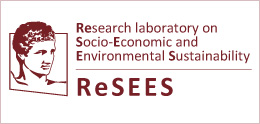(FP4) CYPRUS: Integrated Water Management in Cyprus: Economic and Institutional Foundations
Fourth Framework Programme of the European Commission
CYPRUS: Integrated Water Management in Cyprus: Economic and Institutional Foundations
Objective
This research project is concerned with developing the economic and institutional foundations for an integrated water management system for the island of Cyprus. Within this overall aim, the project focuses on three main themes: (i) evaluation of the potential economic, social and environmental impacts resulting from the introduction of an integrated water management system; (ii) identification of the institutional and instrumental reforms that would be needed to support its introduction; and (iii) consideration of the impact of EU water regulation policies in the context of a highly constrained economy. Within the policy anlysis, the project will explicitly consider the changes to the institutional and instrumental framework that would be needed for Cyprus to bring its water policy into line with EU regulations on water quality and quantity management.
The three project themes are underpinned by a series of specific research objectives which relate respectively to the scientific; the economic; and the institutional aspects of the problem. These are:
1) to evaluate the volume and quality of existing groundwater resources for two specific regions of Cyprus, and determine sustainable levels of water supply from these sources; 2) to determine optimal levels of aggregate water supply over time, taking account of potential new sources of supply and the true social costs of production; 3) to determine the optimal allocation of this water supply between different economic sectors and activities, and hence identify the socially efficient pattern of water savings; 4) to estimate the socially efficient price of water, reflecting the long run marginal social cost of production; 5) to assess the potential structural and distributional implications arising from the introduction of efficient water pricing, and evaluate possible offsetting policy measures that could be introduced to mitigate undesirable effects; 6) to analyse the failures arising under the current institutional and instrumental framework for water policy, and hence identify potential reforms.
The project adopts a multidisciplinary approach, drawing on the perspectives of hydrology, hydrogeology, resource economics, environmental economics and law. Within each discipline a variety of methodologies and techniques are used to address the scientific, economic and legal aspects of the water management problem. The project comprises a series of interlinked work-packages that encompass: the collection of hydrological, hydrogeological and economic data; the detailed scientific analysis and modelling of groundwater resources for two specific regions; the empirical analysis of water demand for the household and agricultural sectors; the economic analysis of water related externalities, and the development of a dynamic dynamic model of water resource allocation; the analysis of the existing institutional and instrumental framework, and the evaluation of potential changes including the removal of subsidies and role for economic instruments.
Start date1 January 1999
End date30 June 2001




 76 Patission Str.
76 Patission Str. 30 2108203 455
30 2108203 455
